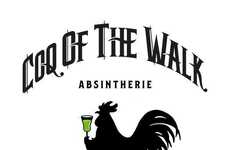



Alcohol brands use events to raise environmental awareness
Trend - Alcohol brands are committing to sustainable practices and using events to showcase organizational commits, this includes cocktail competitions, workshops, and more. Many of these events highlight sustainability in various ways including the use of local ingredients, as well as having furniture and glassware that are 100% upcycled.
Insight - Many younger consumers value brands that engage in eco-conscious behaviors and promote sustainability. However, it is not enough to simply promote awareness and customers also wish to see direct action. This is because Millenials and Gen Z consumers do not trust brands at face value, as they are the most educated generations to date and recognize some adverse impacts of large brands in the past.
Insight - Many younger consumers value brands that engage in eco-conscious behaviors and promote sustainability. However, it is not enough to simply promote awareness and customers also wish to see direct action. This is because Millenials and Gen Z consumers do not trust brands at face value, as they are the most educated generations to date and recognize some adverse impacts of large brands in the past.
Workshop Question - What is your brand doing to ensure you can draw in today, and tomorrow's consumers?
Trend Themes
1. Sustainable Event Hosting - Alcohol brands are hosting ecotainment events, showcasing their sustainable commitments and practices.
2. Clean Air Bar - Ketel One Vodka has launched a plant-filled, eco-friendly clean air bar that offers gardening masterclasses and drinks with locally sourced ingredients.
3. Sustainable Cocktail Practices - Ketel One Vodka has created a sustainable cocktail bar using reclaimed- and repurposed post-consumer materials to inspire classic cocktails with a sustainable twist.
Industry Implications
1. Food and Beverage - Brands can explore sustainable event hosting, eco-friendly bars, and sustainable cocktail practices to appeal to eco-conscious consumers and differentiate themselves in the market.
2. Hospitality - Hotels and restaurants can incorporate eco-friendly practices, such as clean air bars and sustainable cocktail menus, to attract younger generations and support sustainability efforts.
3. Education and Training - Businesses can offer training programs and courses focused on sustainable practices in winemaking and other food and beverage industries to better educate customers and producers on the importance of sustainability.





























































